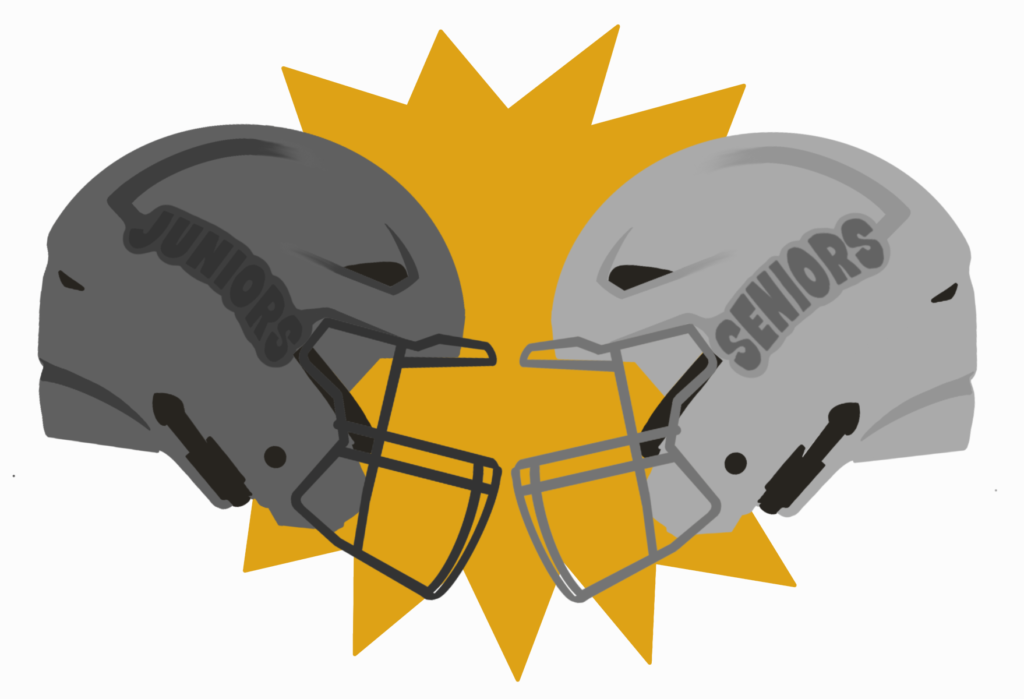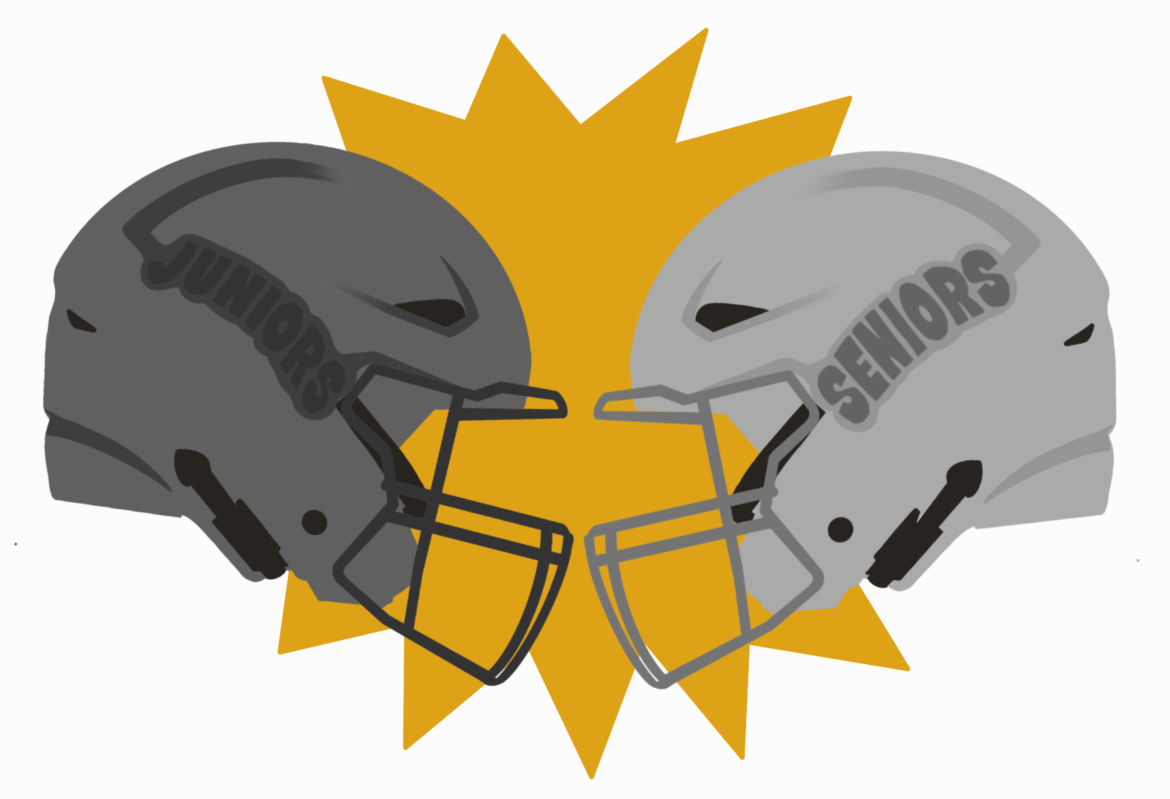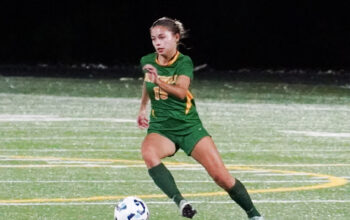What do broken noses, school spirit, and class rivalries all have in common? The answer lies in Roosevelt’s annual Clash of Clans and Power Puff games.
While these traditions hold a long-beloved place in the heart of many RHS students, concerns about safety and the culture surrounding the sport arose following the Power Puff game held on the Roosevelt field last May.

Since then, questions have circulated through the school as to whether or not Power Puff and Clash of Clans will take place this spring and what changes are required to make the games happen.
Power Puff, more commonly known throughout the U.S. as ‘Powder Puff,’ as well as Clash of Clans, commonly known as ‘Buff Puff,’ have been staples in American high schools for decades.
Clash of Clans coach Lauren Guise states, “[Ryan] Sherlock, [Katelyn] Plesha, and [Jessica] Proctor brought up the concern that the original names of these Roosevelt traditions were inherently sexist. So, we brainstormed some new names and decided on Clash of Clans and Power Puff.”
Administration notes that ‘Powder Puff’ alludes to women powdering their faces, while ‘Buff Puff’ implies that men are stronger athletes.
This contradicts the goal of Roosevelt math teacher Jeff Ware, who brought Power Puff to Roosevelt in 2007 with the hopes of creating a new outlet for school spirit and to bond upperclassmen.
At Roosevelt, Power Puff is a junior vs. senior flag football game in which players from the boys’ varsity football team coach female students in their own grade. Clash of Clans, the corresponding volleyball game, sees the girls’ varsity volleyball players coaching male students.
Roosevelt athletics director Ryan Sherlock expands that participating in these traditions helps student athletes understand what their peers go through, generating mutual respect.
Joey Vila is an RHS senior and varsity football player who plans to play Clash of Clans and coach Power Puff. Vila says, “Buff Puff [Clash of Clans] and Power Puff are a chance for both boys and girls to play a sport that is not offered at Roosevelt.”
For all the praise Power Puff receives, it has also long drawn criticism. Power Puff is generally a flag football game played without protective gear, and with so much hype and tension around the competition, things can escalate quickly.
Roosevelt’s 2021 Power Puff game seemingly upheld these concerns when the game was called off in the second half. Reports on the specifics of the incident vary, but the overall details remain the same: Ryan Sherlock shares that “two girls collided … both of them ended up getting hurt.” At least one student ended up with a broken nose, and Sherlock referenced a potential torn ACL.
Power Puff is meant to be a zero-contact sport, played without helmets or padding. Sherlock states that the collision last year took place with “no ill intent,” however junior football player James Washburn feels there’s more to the story.
Washburn says, “It didn’t necessarily start out super aggressive, it started more light-hearted, but as people got more into it things escalated.” Joey Vila noted that there were at least 200 parent and student spectators, all of whom were incredibly hyped up.
Washburn explains that this excitement combined with the players’ passion made it challenging to regulate the game. “All it takes is like, she pushed her, then she pushed her back harder. She tackled her, so she tackled back harder. I feel like that elevated and there wasn’t really any [direct student] intervention.” While Sherlock did eventually shut the game down entirely, student coaches did not bench players or sub them out.
Washburn feels that a big part of preventing injuries is remembering that the games are just for fun. At its best, senior Power Puff player DJ Symons says both games are “a fun event to bring us together with school spirit and have a great time” Joey Vila describes the game as “super chill and not taken too seriously.”
Somewhere in the friendly competition between the class of ’21 and ’22, excessive tension arose on the field. Roosevelt students have been left wondering why.
Washburn explains that part of the problem may be how secluded both Clash of Clans and Power Puff are from RHS students. All of the athletes interviewed state that they became involved in the tradition with their friends, and in multiple cases people became interested because they had a sibling play in years past.
Varsity sports teams are mostly made up of upperclassmen who have known each other and played together for several years. This is incredibly helpful in creating successful and unified sports teams, but often isn’t conducive to expanding the bubble of who participates in Clash of Clans and Power Puff. DJ Symons and James Washburn feel that more school involvement may be helpful.
The role of the school in facilitating Power Puff and Clash of Clans has traditionally been limited. Most students feel that it’s important for Clash of Clans and Power Puff to be student-led, but DJ Symons says that the games could benefit from increased involvement by ASR and administration.
Washburn agrees, saying that “involving the school will wind up with more students outside of football and volleyball getting involved, which will remind everyone that the game is about school spirit, not just competition.”
Symons adds that for the first time, Power Puff athletes this year will be signing safety contracts and having discussions about how to ensure the tradition can continue for years to come.
Guise informs that Clash of Clans will take place in the RHS gym on May 12, followed by Power Puff on the RHS field on June 8.
Ware shares that every year except 2012, the class with an odd graduation year has always won Power Puff. Time will tell if this holds true as the senior Class of ’22 faces off with the Class of 23’s juniors. Regardless of who wins, the community awaits to see if the role of Power Puff and Clash of Clans will evolve and change for the better, and hopefully this beloved tradition can last for years to come.

